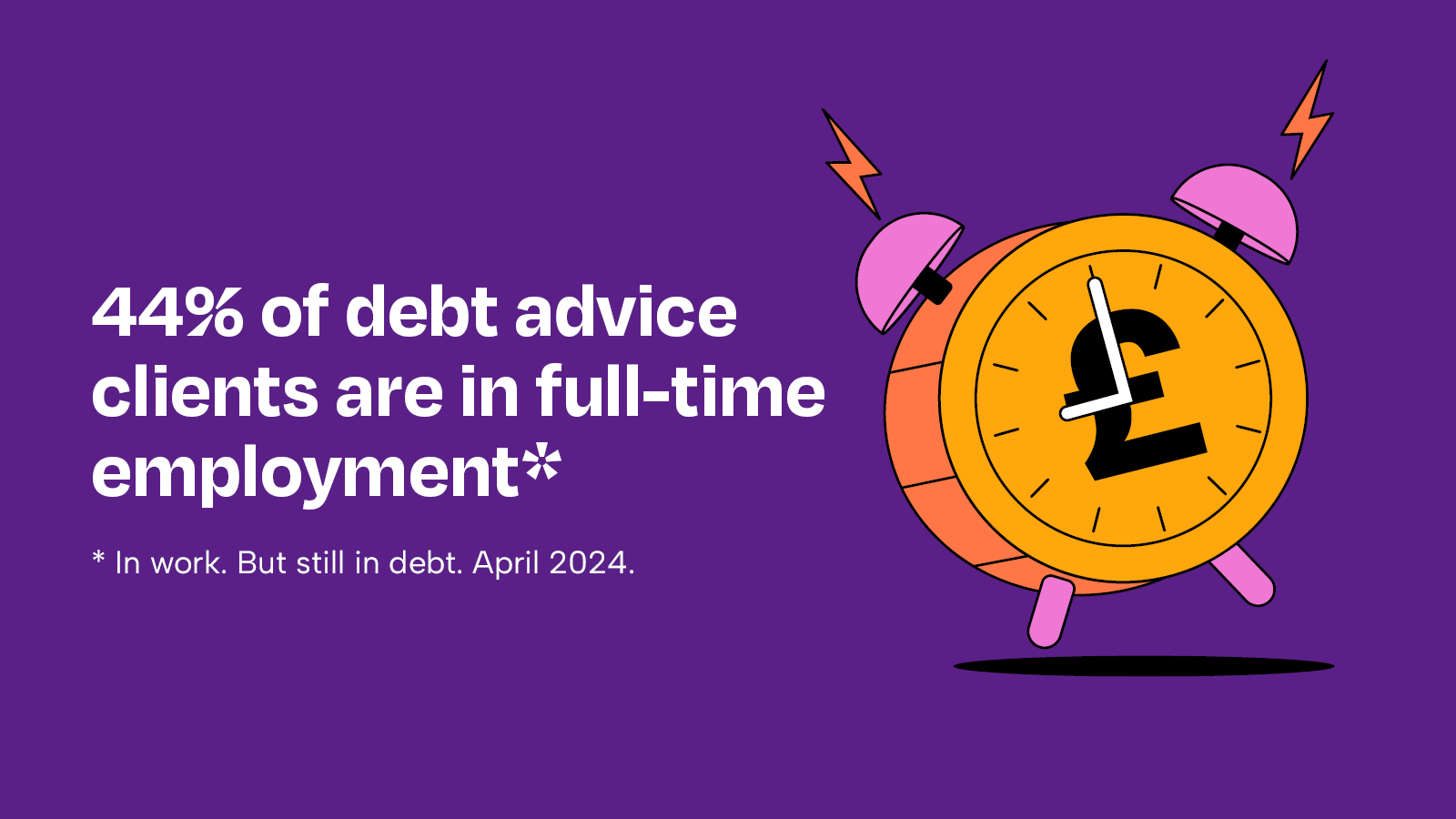Key findings
1) Increase in full-time employed clients seeking debt advice
StepChange data from 2021 showed that 38% of those seeking debt advice were full-time employed, however, recent data (December) for 2023 reveals a six percentage points increase to 44%. Compared to 2021, in 2023 we saw slightly more full-time employed clients who are women, aged 35-49, with children, and homeowners seeking debt advice.
